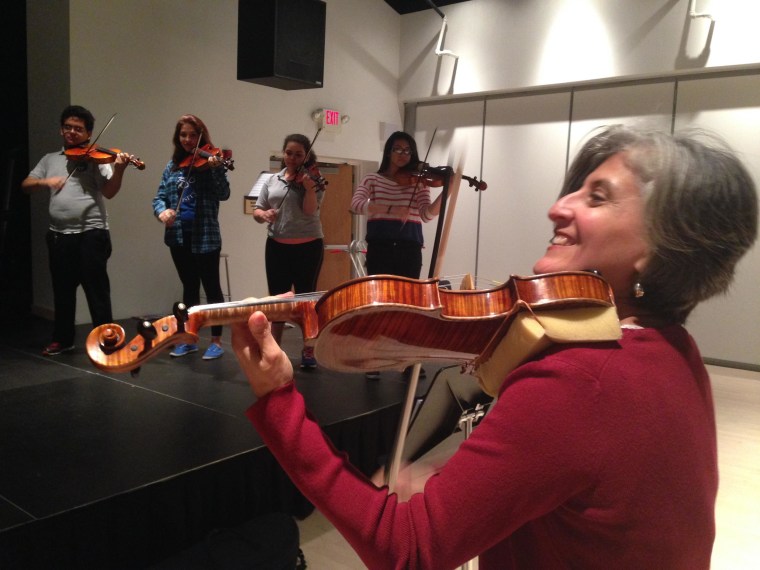MILWAUKEE, Wis. -- Close your eyes and the music will transport you to a symphony hall, to a Mozart violin concerto worthy of a prime stage. You would never know it just by listening, but none of the students have ever played an instrument before enrolling in the program. That’s the magic of the Latino Arts Strings Program at the United Community Center in Milwaukee. The program has helped Latino children gain more than just musical mastery - it's been a key to scholarships, musical careers and self-confidence and pride.
“They stop saying ‘I can’t’ at a very early age,” said Dinorah Marquez of her students. The creator of the program is breaking boundaries as she places and mentors low income and oftentimes undocumented students through a classical music journey, which is not very typical of Latino communities across the country. The program focuses on the principles of Mozart and Tchaikovsky while placing an emphasis on Latin American classics such as “La Bamba”.
This is why Marquez has become a leader in developing cultural ambassadors and instilling confidence and pride in immigrant children. “So they are very well received and recognized for what they do, so they go ‘Oh well my culture is important, very well appreciated’” said Marquez, who knows firsthand what this boost of confidence can do for an immigrant child.
“It does make people change their minds, [and] see our young people in a very different way,” said Latino Arts Strings Program creator Dinorah Marquez.
It was early 1970 when at age 10, Marquez trekked the Mexico/Texas border. At the time, she didn't understand or speak a word of English, and this led to a very difficult childhood. “Very quickly, I realized that music became my sanctuary - and then it became my voice,” she said.
Learning and mastering the violin helped Marquez achieve what she, at first, thought was unattainable. Through the years she became an accomplished musician and after graduate school in Chicago, Marquez was determined to help the younger generations. She set her sights on Milwaukee - the location of a burgeoning Latino community.

According to data from the U.S. Census, the Hispanic population in the State of Wisconsin has experienced a surge with an increase of 74 percent over the past decade – today it surpasses 330,000 people; most of whom have emigrated from Mexico and reside in Milwaukee.
But it took some convincing, said Marquez, to bring her program to life, as many never thought a classical strings program would thrive in the Latino community. Yet thrive it did, and in just 12 years, the program has grown from 10 to over 180 students. In fact, due to the popularity of the program, most students are selected through a raffle when they enroll in kindergarten. If chosen, they are expected to commit to being a part of the program and mastering their instrument until they graduate high school.
According to Marquez, “They [the students] have a motto, ‘I don’t want to be cute, I want to be excellent.’” And their excellence is routinely on display as the group has been invited to the White House on not one, but two, occasions. They have multiple recordings to their credit. And, they perform at over 30 regional and national concerts a year.
Many of Marquez’ students have earned principal spots on the Milwaukee Youth Symphony and full scholarships to prestigious private high school and universities. Said Marquez, the proud leader who dreams of seeing her program replicated throughout the Latino barrios of the U.S., “It does make people change their minds, [and] see our young people in a very different way.”